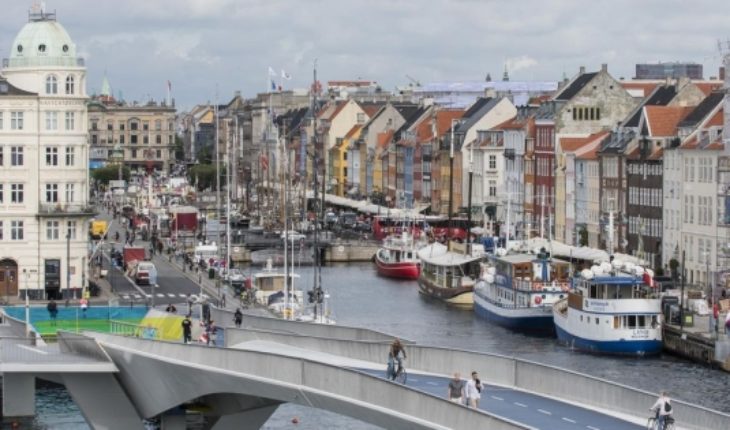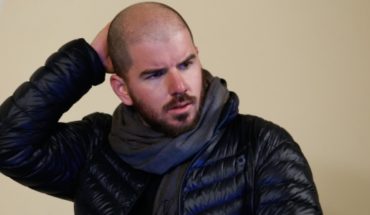It is not inconceivable that your travel agent will soon be able to take the place of your doctor, especially if the doctor who sees most frequently is a therapist.
A growing number of travel professionals are now “prescribe” custom vacations, which aims to address the questions and frustrations that we feel in our daily lives. Whether to strengthen family relationships, improve the balance between life work and family or cure a drought business, are solutions to problems that do not constitute individual medical diagnosis, but now day seem as common as cold .
“I’ve been traveling only in this way for many years”, says Tom Marchant, co-founder of the Black Tomato luxury travel company. “The most valuable things I brought from my travels are the lessons for other communities that I have been able to implement in my daily life.”
That philosophy is what led him to create Bring it Back, a collection of itineraries with a mission that travelers can be customized based on your goals and personal challenges. Needs expected to help customers address include how to turn a passion into a career, how to stimulate creativity, or how to lead a more healthy and sustainable lifestyle.
“I see constantly to people struggling with frustrations that need removing, and simply do not feel that they have the time,” says Marchant. “There is nothing wrong in using trips to refuel on the beach, but they can also be a brilliant vehicle for these answers to the fundamental questions that we all have”.
Travel that will solve its crises of the middle ages this type of trip ideas are based on deep cultural experiences. Unlike the traditional holidays, travellers reserve according to what they want to learn, not to where you want to go.
To improve the separation between the personal and the professional, for example, Marchant recommends Copenhagen, where travelers can meet with a variety of experts who have shaped the reputation of Scandinavia concerning the balance between work and life.
As for strengthening family relationships, said that Mongolia is the best: there, travellers can spend time with multi-generational nomadic communities whose traditional lifestyles require young people to care for his grandparents both as the grandparents take care of young people.
“It is not necessarily to find the correct way, but find an alternative way”, says Marchant, recognizing that different cultures from around the world can address the same problems differently. “We want people to be exposed to a way of thinking differently so that they can incorporate it into their daily lives.”
A six-day trip to Iceland designed to address the “entrepreneurial inspiration”, for example, includes daily lessons like “prepare your body and mind for transformation” (through a dip in the Blue Lagoon geothermal Springs), “make better use of its resources”(a walk with the founder of the flourishing company of travel Into the Glacier), and ‘create new opportunities from obstacles’ (a day with an icelander who almost lost everything in the eruption of the Eyjafjallajökull volcano, and then used the tragedy as a springboard for a now thriving business).
A movement more broad Marchant offer is the first formal product in promoting travel as therapy, but others are on the same wavelength. The most notable is David Prior, who co-founded a homonymous travel membership club last fall with principles similar to the Bring it Back.
“Many of our first customers came to us looking for a total restart,” said Prior. “And our response to that is to go beyond the spa & hiking vacations and do something more creative and meditative.” Learn a new skill in its place of origin, says, is a particularly good strategy. “It is the idea of using hands to exit the head.”
For a customer in search of creativity, that meant travel from Tasmania to Seville and the English countryside, learning different ways of picking fruit and produce jam, a favorite food in each destination. For a mother seeking to connect with your teenager, it was a number of kinds of pottery and dyeing Indigo with Japanese masters.
And sometimes, it takes more than an internal journey, says Prior. For the founder of a major technology company that needed a break, strategy was to show the world through a lens of non-enterprise and close the Sagrada Familia in Barcelona for the biggest moment of contemplation. And for a customer who had begun to feel overwhelmed by the human condition in the light of the current policy, the recipe was a spiritual escape in Varanasi and Rajasthan in India. Each of the Prior trips is planned as a unique event, what he calls a “recipe of travel” personalized.
“We want to send to people where feel more like themselves, and identify what will be the most liberating for them,” says Prior.
The medicine that you don’t know that you need to “most of the journeys of our customers are motivated by experiences in danger of extinction (conservation of wild and cultural life) and, increasingly, by the desire of a philanthropic contribution to places that visit”, said Jimmy Carroll, co-founder of Pelorus, a travel company’s expedition based in Great Britain. Your company has a life consultant on the payroll who can create programs for guests seeking to recover spiritually or energize for the future challenges of life, but Carroll says that demand is still early for this kind of offer.
“We only make a few trips such as this year,” he says, “mainly for younger travelers, people in their 30s who are constantly connected.” “Having a life coach in your travels, not in your everyday life, it gives you time to think and reflect, and that makes all the difference in terms of meaningful change”.
“This is something that we see as motivating increased travel in the next two to five years,” predicts Marchant, inspired by the increased awareness of mental health and overall wellbeing.
Prior is agreed. Already working on at least half a dozen travel recipes each month. “There is a large industry around what we are doing that even not have grasped completely,” he says. “It’s certainly a growing market; people increasingly want more use their free time to enrich their lives in some way”.
The key, says Marchant, is to think not only as a travel agent, but as a psychologist.
“We have to match the destinations and experiences with what people are going on in their lives,” said Marchant. And this time, a beach resort where pampered them will not suffice.
translated from Spanish: Travel becomes the new therapy against existential crises
April 1, 2019 |





